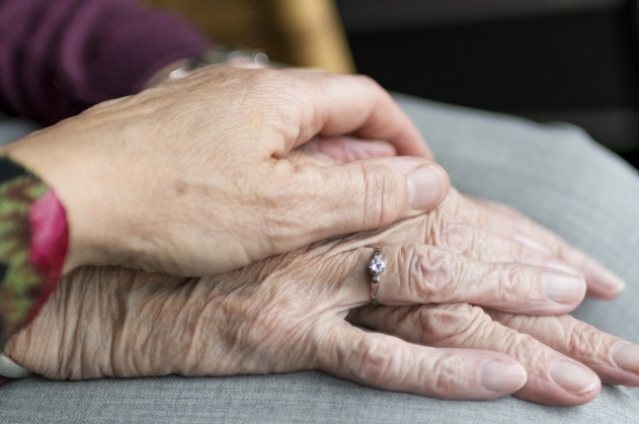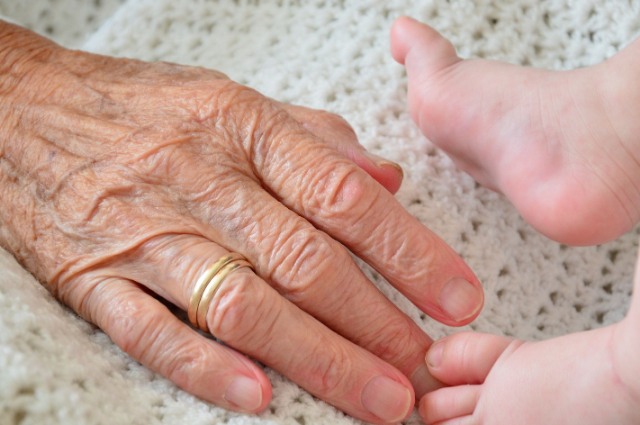
Image by Sabine van Erp from Pixabay
India introduced the Mental Health Care Bill in 2017, which was a significant move to acknowledge that Indians aren’t immune to mental health crises and are in need of assistance. But unfortunately, mental health still remains a neglected area, and it also appears that proper data on mental health cases in India have yet to be recorded. We are well aware of the stigma and discrimination associated with mental health issues. We are yet to acknowledge the existence of these issues amongst us, which prevent people from accessing proper treatment and therapy. Several mental health survivors have expressed their struggles, and although there are various organisations and groups providing assistance, Indians have a lot to achieve in this sensitive area.
We cannot blame a single factor that triggers or causes variations in one’s mental health. WHO has evidently said that the mental health of an individual is affected by "social, cultural, economic, political, and environmental factors," as well as "specific psychological and personality, and genetic factors."
In this article, we will be taking up a discussion around mental health being passed down to younger generations in a family. I had been observing my parents lately in order to understand the common behavioural patterns in my family when I realised they were carrying their share of emotional baggage, which can be linked back to their past experiences. Apparently, I came to the conclusion that if I convinced my parents to see a mental health therapist, a slew of past traumas and unresolved, complicated emotions would bubble to the surface. And it was startling that they'd spent more than two decades in the dark without acknowledging it. Society has always judged people, and perhaps for this reason, parents tend to paint a stronger and undefeated persona for their children.
There has always been a taboo and a fear surrounding mental health all around the world, but when it comes to India, we have a really long way to go. There is a common misconception that only people of a certain age experience issues with their mental health. I would like to quote from the website of the Centers for Disease Control and Prevention:
9.4% of children aged 3-17 years (approximately 5.8 million) had diagnosed anxiety in 2016–2019.
4.4% of children aged 3-17 years (approximately 2.7 million) have been diagnosed with depression in 2016-2019.
It has been researched and documented on several occasions that parents pass down their difficult emotions and trauma to their children in one way or another without knowing. The consequences are obvious: children's inability to cope in stressful situations, their inability to recover from a loss, increased risk of anxiety and depression, difficulty and fear in maintaining healthy relationships, substance abuse, self-harm, and the risk of developing phobias with respect to people and places. It is not surprising that there seems to be a higher chance that younger men and women in our country may be carrying these inherited traumas.
The scientific term to describe this condition is "intergenerational trauma." This idea was first recognised by a Canadian psychiatrist, Vivian Morris Rakoff, in 1966, when he pointed out the high rates of psychological crisis among the children of Holocaust survivors. A somewhat similar study in later decades also showed that even their grandchildren carried traces of the past traumas. Suffering, stress, and all of its consequences are passed down from older generations to younger generations in these circumstances.
The categories and intensities of traumatic experiences can vary. The most discussed of them all are acts of violence, assault, abuse, or emotional negligence within the family or community, or a tragedy that occurred in a family resulting in emotional loss. A much larger and more atrocious event in the history of a race like the Holocaust can also result in generations of trauma.
On a smaller scale, say, for instance, a parent who was emotionally neglected as a child will never be able to provide emotional stability to his or her child and will always remain emotionally disconnected. A parent who grew up without their biological parents will face emotional and mental challenges raising their biological children because they will never know what they, as a parent, are expected to do or how they are supposed to connect with and look after their children. Another common example is when a parent was only exposed to emotional and mental abuse or violence as a child; he or she may carry this sentiment forward. If not addressed, this cycle can continue for generations, resulting in intergenerational trauma.
On a much larger scale, intergenerational trauma can revolve around racism, sexuality, gender orientation, etc. Plenty has been written about the racial discrimination against blacks, who have a gruesome history of slavery, or the Native Americans and other indigenous people around the world who were also discriminated against, tortured, and wiped out from their lands. Their descendants were never viewed as a part of the developing society, although we do see that they are slowly being accepted and respected for their background and history. A similar sentiment can be identified in the history of India, where Dalits and other tribal communities are still struggling to be respectfully welcomed as equals in our society. Now that we are discussing intergenerational trauma, I wonder how the younger generations of these communities deal with hatred and inequality, how they embrace their identities, or how they cope with the trauma that they have unconsciously inherited.
The lives of this younger generation are mostly disturbed and chaotic, and although they wish to be happy, they fail. They are constantly aware that their parents and grandparents have been victims of injustice and discrimination, which increases their chances of carrying their elders' wounded emotions. It haunts them at every stage of their lives.
A parent or grandparent who never fully recovered from their trauma will find it difficult to help their children and grandchildren. My parents, for instance, have lived all their lives in denial that they ever had to deal with a traumatic experience. And even if they accept it, they would never appreciate discussing it and would pretend that it isn’t that significant. This way, they reduce any chances of connecting with me if I ever face similar trauma.
Probably, these are the only two ways in which such intergenerational traumas go unresolved. Our elders either deny it or call it unimportant.
Intergenerational trauma, as we commonly know, can be acquired by younger generations after being exposed to the traumatic experiences of their families and ancestors. They learn enough at home. Their parents' nature and behaviour toward their children determine the course of their lives, sometimes resulting in an emotionally and mentally painful future. The young mind never forgets. But it has been scientifically suggested that intergenerational trauma can be passed down to younger people through genes.
I happened to read an article by a medical reviewer on Psycom that revealed that intergenerational trauma has been recognised medically as "epigenetic trauma." It proves that trauma leaves "a chemical mark" on the genes of a parent, which is then passed down to the offspring. It alters the way in which "the gene is expressed."
Epigenetics has been used to understand how the activities, habits, and experiences of a parent affect the child through genes. Even an article in Scientific American, the oldest magazine in the United States, has mentioned that,
"trauma leaves a trace in offspring even before they are born [...] adverse experiences may influence the next generation through multiple pathways."
They inform the readers about these reasons, which, according to their research, show that children of parents who survived the Twin Towers disaster carry traces of trauma and suffer from PTSD. The writer of the said article, Rachel Yehuda, also gives another example: the children of Holocaust survivors facing similar traumatic issues. These are examples of intergenerational trauma on a larger scale, not only affecting families but communities and countries.
I believe our parents find it challenging to understand our mental health because they weren’t ever introduced to their own state of mind. They never got a chance to accept their reality. As they viewed their struggles and hardships as a part of human life, they never cared to deal with their effects on their wellbeing. Perhaps this is the reason why our parents and grandparents rarely use the term "stress" in their conversations as often as our generation.
I wrote an article on Medium, dated June 5, 2019, titled, "How much do Indian parents understand depression?" In this article, I quoted,
"The emotional support from our families is crucial, and that is where we fall short... Parents must encourage their children to talk about their mental state. And it’s only possible when our parents and elders recognise depression and the fact that it can affect anyone."
It is natural that the younger generations of traumatic survivors will struggle with complex traumas and feel helpless and abandoned. They may feel dissociated or lifeless from within, frequently feel like failures, and occasionally blame their parents for their condition. They are more likely to resort to substance abuse and eventually make their lives fall apart. If ignored, young children often show signs of disrupted physical and mental growth.
A lot has been said, but how can we break the vicious cycle of intergenerational trauma?
Psychologists have a few suggestions that include individual and group therapy, psychotherapy, etc. These methods involve identifying the source of the trauma, the period for which the person was experiencing symptoms, and the individual triggers.

But apart from these clinical methods, I believe it is essential that the older generations of survivors choose to open up and discuss their painful pasts in order to push their younger generations to do the same.
We, the younger people, need to realise that we have different personalities and very distinct lives from our ancestors. We may be victims of intergenerational trauma, but we have the ability to shape our lives away from the shadows of the past. It may prove difficult to break the cycle and trick the brain, but there is always someone who holds the power to put an end to generations of mental and emotional struggle. And it is also in the control of others to willingly offer support to help them embrace their past.
. . .
REFERENCES:
- Mental health. (2019, May 17). https://www.who.int/india
- Anxiety and depression in children: Get the facts | CDC. (2020, December 2). Centers for Disease Control and Prevention. www.cdc.gov/childrensmentalhealth
- psycom.net. (n.d.). www.psycom.net/trauma
- Yehuda, R. (2022, July 1). How Parents’ Trauma Leaves Biological Traces in Children. Scientific American. scientificamerican.com
- Inter-generational Trauma: 6 Ways It Affects Families | Office for Institutional Equity. (n.d.). https://oie.duke.edu
- T, A. (2022, November 29). How much do Indian parents understand depression? - Ankita T. Medium. atripathi0908.medium.com
